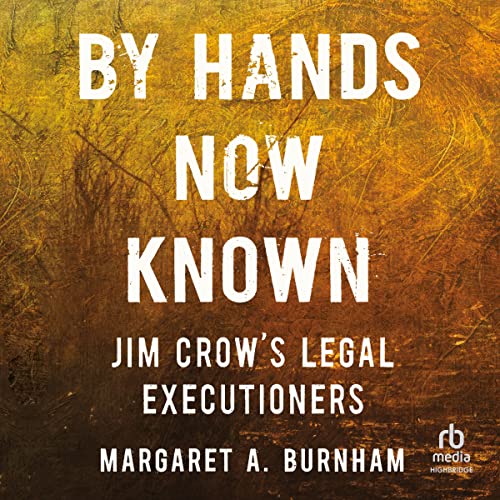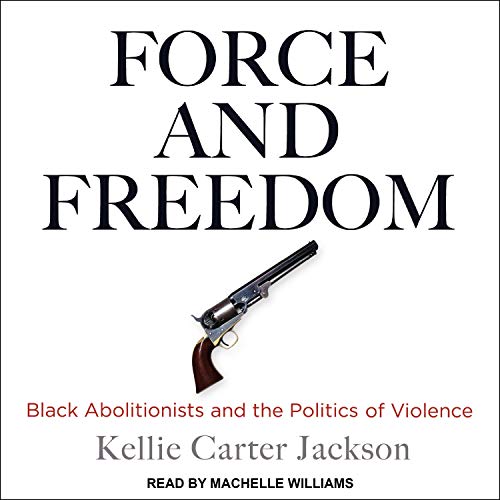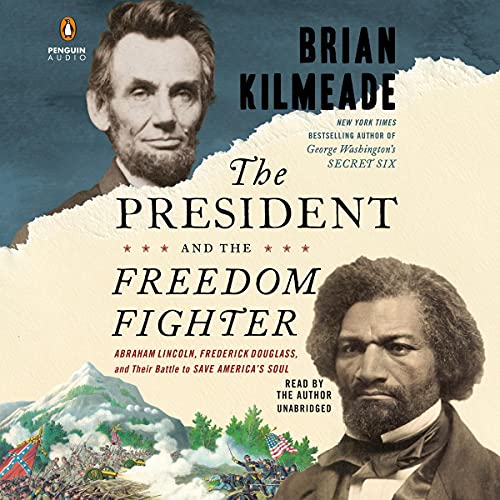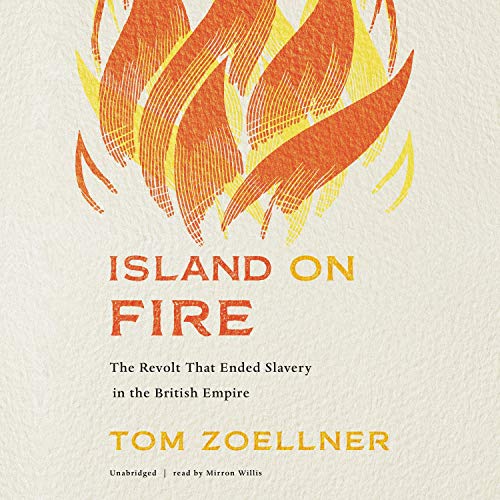
 Audible sample
Audible sample  Playing...
Playing... 
 Paused
Paused  Your audiobook is waiting!
Your audiobook is waiting!
Enjoy a free trial on us
$0.00$0.00
- Click above for unlimited listening to select audiobooks, Audible Originals, and podcasts.
- One credit a month to pick any title from our entire premium selection — yours to keep (you'll use your first credit now).
- You will get an email reminder before your trial ends.
- $14.95$14.95 a month after 30 days. Cancel online anytime.
Buy
-13% $25.59$25.59




John Brown, Abolitionist: The Man Who Killed Slavery, Sparked the Civil War, and Seeded Civil Rights
 Audible Audiobook
– Unabridged
Audible Audiobook
– Unabridged
Few historical figures are as intriguing as John Brown, the controversial Abolitionist who used terrorist tactics against slavery and single-handedly changed the course of American history. This brilliant biography of Brown (1800-1859) by the prize-winning critic and cultural biographer David S. Reynolds brings to life the Puritan warrior who gripped slavery by the throat and triggered the Civil War.
When does principled resistance become anarchic brutality? How can a murderer be viewed as a heroic freedom fighter? The case of John Brown opens windows on these timely issues. Was Brown an insane criminal or a Christ-like martyr? A forerunner of Osama bin Laden or of Martin Luther King, Jr.? David Reynolds sorts through the tangled evidence and makes some surprising findings.
Reynolds demonstrates that Brown’s most violent acts - his slaughter of unarmed citizens in Kansas, his liberation of slaves in Missouri, and his dramatic raid, in October 1859, on the federal arsenal at Harpers Ferry, Virginia - were inspired by the slave revolts, guerilla warfare, and revolutionary Christianity of the day. He shows us how Brown seized the nation’s attention, creating sudden unity in the North, where the Transcendentalists led the way in sanctifying Brown, and infuriating the South, where proslavery fire-eaters exploited the Harpers Ferry raid to whip up a secessionist frenzy. In fascinating detail, Reynolds recounts how Brown permeated politics and popular culture during the Civil War and beyond. He reveals the true depth of Brown’s achievement: not only did Brown spark the war that ended slavery, but he planted the seeds of the civil rights movement by making a pioneering demand for complete social and political equality for America’s ethnic minorities.
A deeply researched and vividly written cultural biography - a revelation of John Brown and his meaning for America.
“Absorbing.” (Barbara Ehrenreich, New York Times Book Review)
“Almost every page forces you to think hard, and in new ways, about American violence, American history, and what used to be called the American character.” (Adam Gopnik, The New Yorker)
- Listening Length25 hours and 14 minutes
- Audible release dateMay 14, 2019
- LanguageEnglish
- ASINB07RGM422W
- VersionUnabridged
- Program TypeAudiobook
 Read & Listen
Read & Listen
Get the Audible audiobook for the reduced price of $11.99 after you buy the Kindle book.
People who viewed this also viewed
- Audible Audiobook
- Audible Audiobook
- Audible Audiobook
- Audible Audiobook
- Audible Audiobook
People who bought this also bought
- Audible Audiobook
- Audible Audiobook
- Audible Audiobook
- Audible Audiobook
- Audible Audiobook
Related to this topic
- Audible Audiobook
- The President and the Freedom Fighter: Abraham Lincoln, Frederick Douglass, and Their Battle to Save America's Soul
 Audible Audiobook
Audible Audiobook - Audible Audiobook
- Audible Audiobook
- Audible Audiobook
Product details
| Listening Length | 25 hours and 14 minutes |
|---|---|
| Author | David S. Reynolds |
| Narrator | P.J. Ochlan |
| Whispersync for Voice | Ready |
| Audible.com Release Date | May 14, 2019 |
| Publisher | Random House Audio |
| Program Type | Audiobook |
| Version | Unabridged |
| Language | English |
| ASIN | B07RGM422W |
| Best Sellers Rank | #47,708 in Audible Books & Originals (See Top 100 in Audible Books & Originals) #26 in U.S. Abolition of Slavery History #38 in Biographies of Activists #69 in American Civil War |
Customer reviews
Customer Reviews, including Product Star Ratings help customers to learn more about the product and decide whether it is the right product for them.
To calculate the overall star rating and percentage breakdown by star, we don’t use a simple average. Instead, our system considers things like how recent a review is and if the reviewer bought the item on Amazon. It also analyzed reviews to verify trustworthiness.
Learn more how customers reviews work on Amazon-
Top reviews
Top reviews from the United States
There was a problem filtering reviews right now. Please try again later.
Reynolds goes beyond simply recounting Brown's life. He describes the context before, during, and after Brown's life. Based on this context, it's easy for the reader to see the central role John Brown played in provoking the South's succeeding from the Union in response to Abraham Lincoln's election.
Reynolds is correct in crediting John Brown as the man who killed slavery. The book describes, well, the significant supporting roles played by a host of characters in both the North and the South who made John Brown that man.
Finally, Reynolds gives insight into John Brown's demonstrated character, with respect to race and race relations, without the book coming off like some sort of hagiography.
This book is a fascinating read for those who have a vague sense that a person named John Brown played a major role in American history. Well written, this book would be appropriate for most adults in this country who are curious about Antebellum America and slavery.
The negatives: I felt the author focused too much on Brown's religious background, primarily. I think the US is pretty far removed from Puritanism: when most think of puritans they incorrectly envision either Pilgrims or associate the term with denial of any sort of worldly pleasure. As such, Brown's religion wouldn't resonate in 21st c. America. That theme was overplayed, as was the connection with Cromwell, esp. for Americans, who have no connection to Cromwell.
The positives: the author made the connection to Transcendental philosophy and philosophers well. Having the connection to the US' great intellectuals as a main theme in the book was effective. The contrast between Brown and the deified politicians of the era was also good. The chapter on Black support for Brown was excellent: it felt like a vindication of Brown's efforts. Finally, the most eye opening aspect of this book was the discussion of Brown mania, both North and South which led to the Civil War. Many were taught for years that Lincoln's election precipitated the Civil War. This book makes it clear that after Harpers Ferry, the election of Lincoln was actually less consequential over all as a cause for secession, and actually was dwarfed by the paranoia around Brown after death.
Overall, a good book and very informative. I would recommend it.
All in all though Thoreau and Emerson got it right when they quickly came to his defense after Harpers Ferry. Thoreau compared Brown on the scaffold to Christ on the cross.
If Brown had died at Harpers Ferry before the country could hear his defense and see the greatness of his character--his every word and behavior a challenge to the country to throw off the evils of slavery--history would no doubt have been different. Reynolds is redeeming Brown from neglect and misunderstanding to his rightful place as a heroic patriarch and patriot of America.
In our age when "true believers" are highly suspect, Brown's character and long-contemplated actions shine as an example of exactly how and when a "fanatic" is not a fanatic. Brown founded a community where blacks and whites lived together as equals. He lived out his religious and political beliefs fully, whole-heartedly, yet included others of different beliefs in his inner circle (his first lieutenant was an atheist).
I read mostly library books; this one I bought and buy for others.
- Governor of Virginia Henry Wise, spoken after he met the captured John Brown
Despite of being a pro-John Brown book, I found it very objective. Read this book and you will discover a multi-dimensional John Brown, far from a popular image of an odd fanatic unrelated to the rest of America.
Was John Brown a traitor or a patriot? What's the relation between John Brown and Jamaica? What did John Brown do when he discovered his son's murderer? Did Allan Pinkerton ever help John Brown? Did John Brown approve of the terrorist methods suggested by the Canadian blacks? What role did Transcendentalists play in John Brown's legacy?
This book provides answers to these questions, and makes you appreciate the impact this one person made upon this nation. Truly a must-have for anyone who's really interested in John Brown and cultural history of antebellum America.
Would be an excellent book to read with a child. His ways / values / beliefs were so different from Garrison. Good to compare the two. To think that John Brown was as emotionally charged as people are now - protesting in the streets (June-July 2020). Racism must be addressed no matter the year.


















